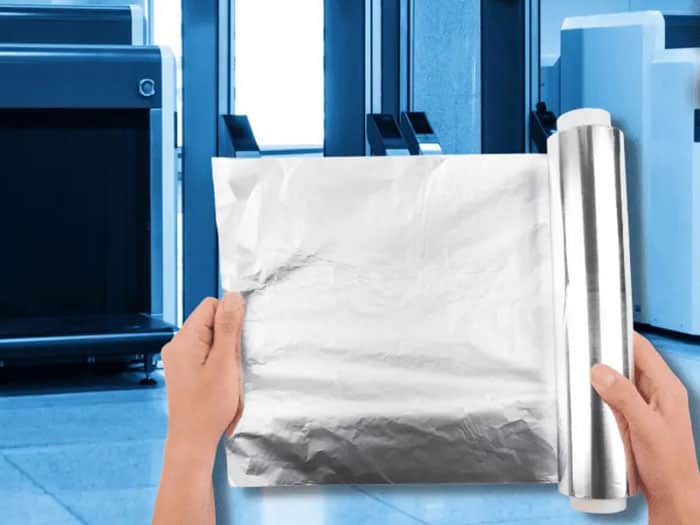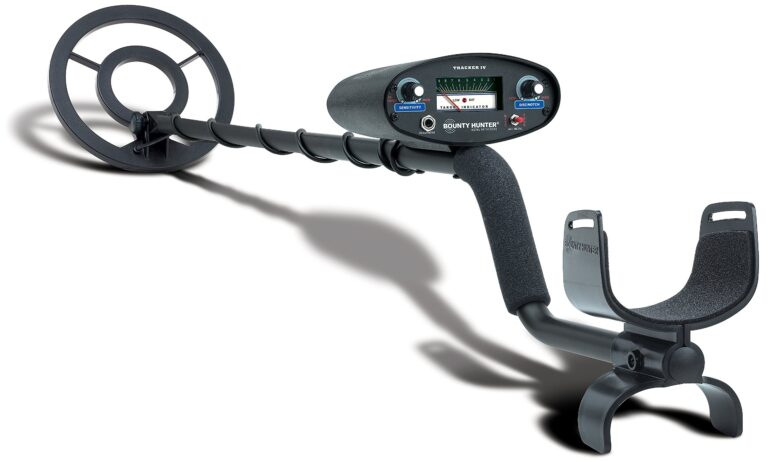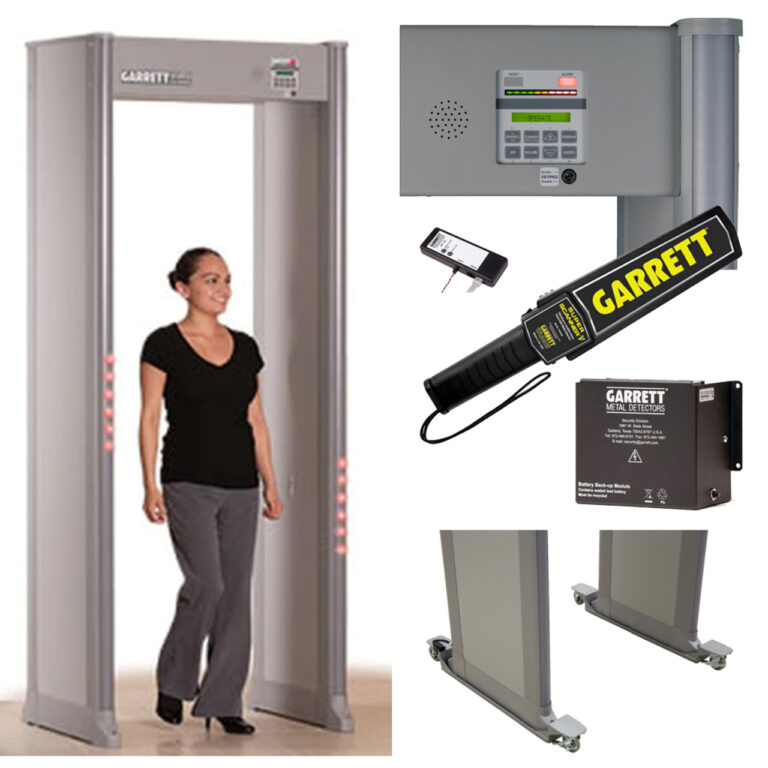Does Tin Foil Set off Metal Detectors
Going through security can be a hassle if you’ve ever been to an airport. You have to take off your shoes, put your laptop in a separate bin, and ensure you have no liquids in your bag. But you might not know that tin foil can set off metal detectors.
That’s right, those little sheets of aluminum foil can cause all sorts of problems at airports. So why does tin foil set off metal detectors? It turns out that it’s because of how tinfoil reflects X-rays.
When X-rays hit tin foil, they bounce back in all directions. This causes the metal detector to think something metallic is in your bag when it’s just a harmless piece of aluminum foil.
If you’re looking for a way to sneak through a metal detector undetected, you might wonder if wrapping yourself in tin foil will do the trick. Unfortunately, the answer is no. Tin foil may help shield you from electromagnetic waves, but it won’t make you invisible to a metal detector.
Wrapping yourself in tin foil is likely to set off the alarm. So, unless you’re planning on going for a swim, we recommend leaving the tin foil at home when going through security checkpoints.
Can Airport Scanners See Through Aluminum Foil?
It’s a common myth that you can outsmart airport security scanners by wrapping your belongings in aluminum foil. Unfortunately, this isn’t the case. Security scanners are designed to detect various threats, including metal objects.
While aluminum foil won’t trigger an alarm, it will be scanned like any other item in your bag. So, don’t bother with the foil if you’re trying to hide something from security.
What Metals Will Not Set off a Metal Detector?
A few different types of metal will not set off a metal detector. The first type is non-ferrous metals, such as aluminum and brass. These metals are not attracted to the magnetic field created by the metal detector, so they will not register on the device.
The second type of metal that won’t trigger a metal detector is stainless steel. This material contains chromium and other elements that make it resistant to corrosion. While stainless steel is not invisible to metal detectors, it takes a much stronger signal to detect this type of metal.
Finally, certain alloys (mixtures of metals) have low electrical conductivity and are also problematic for metal detectors to find.
What Material Will Block a Metal Detector?
When it comes to metal detectors, a variety of materials can block or interfere with the device. Some of the most common materials include aluminum foil, steel, and lead. While these materials are not necessarily “metal,” they can still trigger a false positive on a metal detector.
Sometimes, even something as small as a paper clip can cause interference. So, what about these materials that cause them to interfere with metal detectors? It has to do with the way metal detectors work.
Metal detectors detect metals by using an electromagnetic field. When metallic objects enter this field, they disrupt the magnetic flux and cause a change in the magnetic field. This change is what triggers the detector to sound an alarm.
While aluminum foil, steel, and lead do not contain any metals, they are all conductive materials. This means that they can conduct electricity and create their magnetic fields. When placed near a metal detector, these materials can interact with the device’s electromagnetic field and cause false positives.
Other materials, including glass and certain types of plastic, can also cause interference with metal detectors. However, these materials are less common than aluminum foil, steel, or lead. If you think your material may be interfering with a metal detector, it’s always best to consult the manufacturer before testing it yourself.
How to Block Metal Detectors
Metal detectors are a common security measure in public places, but they can be a nuisance if you carry metal objects on your person. If you need to go through a metal detector with metal objects, there are a few ways to block the signal and get through without setting it off. The easiest way to block a metal detector is with a Faraday cage.
This is a container made of conductive material, like mesh or tinfoil, that blocks electromagnetic signals. You can find Faraday cages for sale online or make your own by wrapping an object in tinfoil. Just ensure that the tinfoil touches all sides of the object; otherwise, the signal will leak out.
If you don’t have access to a Faraday cage, you can block a metal detector with magnets. Strong magnets will disrupt the magnetic field around your body, making it harder for the detector to pick up on metallic objects. You can buy strong magnets online or at hardware stores.
Just hold them close to your body as you walk through the detector. Finally, if you’re still having trouble getting through metal detectors with metallic objects on your person, try wearing loose-fitting clothing. Metal detectors are more likely to pick up on tight-fitting clothes because they hug the contours of your body and allow metallic objects to come into direct contact with your skin.
Do Flasks Set off Metal Detectors
If you’re carrying a flask, it could set off a metal detector. Flasks are made of metal, and metal is what these detectors are designed to detect. However, the type of metal in your flask (stainless steel, for example) and the size of the flask will affect whether or not it sets off the alarm.
Small flasks made of thin metal are more likely to cause an issue than large ones made of thick metal. So if you’re worried about setting off a detector, leaving your flask at home is best.
What Can Block Metal Detectors
Metal detectors are common security devices used in various settings, from airports to schools. These devices send out electromagnetic waves that bounce back when they hit a metal object. The waves are then detected by the metal detector and an alarm is sounded.
However, some materials can block or interfere with the waves from a metal detector. This can lead to false alarms or even missed detection of real threats. Here are some of the most common materials that can cause problems for metal detectors:
- Metals: Obviously, metals will set off a metal detector. However, certain types of metals can be more problematic than others. For example, aluminum foil is often used to wrap food but can also be used to make fake bombs. Likewise, copper wire is commonly used in electrical work but it can also be used to make improvised explosive devices (IEDs).
- Non-metallic objects: Some non-metallic objects can also cause interference with metal detectors. For example, carbon fiber is often used in manufacturing and construction because it’s strong and lightweight. However, carbon fiber can also make fake guns or other weapons that a metal detector might not detect. Similarly, certain types of plastics can also cause problems for these devices.
- Clothing: Clothing itself is not typically metallic, but clothing often contains metals like buttons, zippers, or rivets. These items can set off a metal detector if they’re close enough to the body’s surface being scanned.
Conclusion
Tin foil does not set off metal detectors but can block them from detecting other metals. This is because tin foil is a non-ferrous metal, which means it contains no iron and will not trigger the detector.







